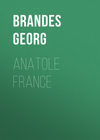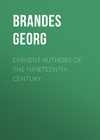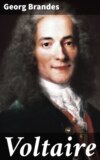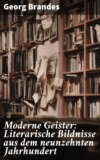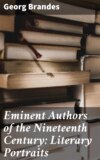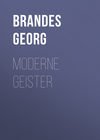Loe raamatut: «Main Currents in Nineteenth Century Literature – 3. The Reaction in France», lehekülg 9
IX
WACKENRODER: ROMANTICISM AND MUSIC
In his Letters on Lucinde, Schleiermacher, the high-minded and honourable, brought all his intelligence to bear upon the task of finding something complete, something sensible, in the book. He read his personal opinions into it. But his position was a false one. He was trying, by means of the discussion of an unreal book, to settle a real question, trying to base a freer, higher moral code upon a work which, instead of doing what it professed to do, namely, proving the possibility of transforming life into poetry, simply retailed the fantastic performances of a few talented individuals, interspersing reflections on the poetry in a wild, extravagant reality.
Lucinde was hollow at the core. And this hollow, empty idealism is a feature common to all the many ramifications of Romanticism. Goethe's Prometheus cries to Zeus: "Didst thou imagine that I would loathe life, that I would flee into the wilderness, because all my dream-blossoms did not mature?" Thus speaks a Prometheus, thus a Goethe. But it was only natural that this emotional, inactive young generation should produce a group of authors who, just because "all their dream-blossoms did not mature," in desperate dissatisfaction with reality grasped at empty air and pursued shadows, which they obstinately persisted in trying to endow with corporeal existence, maintaining that art and poetry and their element and organ, imagination, are alone essential and living, but that all else (in other words, real life) is, as vulgar prose, meaningless, nay evil, in the eyes of genius.28
And yet the earliest preachers of this new doctrine were far from being wild or defiant. The first countenance which meets our gaze is, on the contrary, peculiarly gentle, one of the purest and mildest in all modern literature – the pale, noble face of Wackenroder.
The Romantic enthusiasm for art first found expression in a delicate little work from the pen of an ardent youth, whose life was shortened by the conflict between his burning desire to live for art, and the obligation laid upon him by his father to pursue a practical calling. He died, his powers entirely exhausted, in his twenty-fifth year. His life was like the mild, gentle breeze, which on a day in the early spring warms the air, and tempts forth the first flowers. His letters to Tieck, who was his intimate friend, and for whom he had an unbounded admiration, reveal an almost girlish affection for that more virile and notable man.
In every library of any importance one is sure to find a small, beautifully printed and bound book, published in 1797, entitled Herzensergiessungen eines kunstliebenden Klosterbruders ("Heart Outpourings of an Art-Loving Friar"). The author's name is not given. As vignette there is a head of Raphael, who, with the great eyes, full lips, and slender neck given him in this portrait, looks like some highly intellectual Christian devotee of Venus, far advanced in consumption. The inscription below the picture is not simply Raphael, but "the divine Raphael," i.e. the Raphael of the Romanticists. This dainty little book is, as it were, the primary cell of the whole Romantic structure; round it the later productions group themselves. Though not the offspring of a vigorous creative power, its germinative force proved wonderfully great. It is a book which contains nothing but ivy-like, twining ideas, nothing but passive impressions; but the wax upon which these impressions are stamped is so pure that the impressions are firm and clear. The title does not mislead; the author pours out his heart in a stream of fervent and religious enthusiasm for art, giving expression to a few simple ideas in a simple, untheoretical manner. The book is not the product of a great or epoch-making mind; but it has one great virtue, it is original. To the Friar the only allowable attitude towards art is that of devotion; great artists are in his eyes blessed, holy saints. His admiration for them is that of an adoring child.
More than once in the course of the book Tieck has collaborated with Wackenroder; but the simple autobiography of the young musician, Joseph Berglinger, is entirely Wackenroder's work. The delicate refinement of Berglinger's character reminds us of Joseph Delorme, the fictitious personage in whom the young, Romantic, Sainte-Beuve described himself. Berglinger is Wackenroder. Like Wackenroder he opposes the determination of his father that he is not to become an artist, and simultaneously carries on an even harder struggle with himself in the matter of his position towards art. What troubles him is a fear, which curiously enough meets young Romanticism here on the very threshold, like the shadow of its fate, the fear of being incapacitated for real life by too entire absorption in art. Rückert has given masterly expression to the idea in the following lines: —
"Die Kinder, lieber Sohn, der Gaukelschwertverschlucker
In Madras üben sich nicht an Confekt und Zucker,
Von Bambus lernen sie die Spitzen zu verschlingen,
Um wachsend in der Kunst es his zum Schwert zu bringen.
Willst Du als Mann das Schwert der Wissenschaft verdaun,
Musst Du als Jüngling nicht Kunstzuckerbrödchen kaun."29
Joseph expresses it thus: Art is a tempting, forbidden fruit; he who has once tasted its sweet, innermost juice is irrevocably lost to the acting, living world. The soul which art has enervated is perplexed and helpless face to face with reality. Joseph himself is only delivered from this distressing mental condition when glorious music raises him high above the troubles of this earth. But he is at the mercy of his moods, and fittingly likens his soul to the "Æolian harp, whose strings vibrate to a breath that comes one knows not whence, and on which the changing breezes play at will." Music was the art Wackenroder loved and understood best; in his posthumous Fancies on the Subject of Art he places it above all the others.
Wackenroder resembled Novalis in constitution, but had even less capacity for resistance to the storms of life. He was good-natured and credulous to a degree, with a genuine Romantic credulity, which saw mysteries and miracles everywhere. This inclination of his led to practical jokes being played upon him by his comrades – though they too were all more or less liable to hallucinations and disposed to put faith in miracles. An account of one such trick has been preserved, such an anecdote as only the biography of a Romanticist could supply. Indeed, to understand the theories of the Romanticists, it is necessary to see the men themselves in their everyday life and at their desks. – Wackenroder was a diligent student, and never willingly missed a lecture. Two of his less conscientious friends went to his room during the hour of a certain lecture, knowing that he would be absent, and tied a dog, in a sitting posture, to the chair in front of the writing-table. Both paws were carefully placed on a huge folio which lay open on the table. The clever animal, accustomed to such performances, sat quietly in this ludicrous position while the two friends hid in an adjoining room to watch the development of their plot. Returning earlier than usual to fetch some papers he had forgotten, Wackenroder stood motionless with astonishment, gazing at the dog and its learned occupation. Fearful of neglecting his duty, and unwilling to put an end to the marvellous apparition, he gently lifted his papers from the table and left the room. In the evening, no one else seeming inclined to talk, he suddenly broke the silence by saying impressively: "Friends, I must tell you a most marvellous thing. Our Stallmeister (the dog) can read."30 Does not this read like a scene from Tieck's Puss in Boots or Hoffmann's story of the dog Berganza? Do not these books, grotesquely unreal as they are, seem actual transcripts from the private lives of the Romanticists? In Kater Murr, the cat says: "Nothing in my master's room attracted me more than the writing-table, which was strewn with books, manuscripts, and all manner of remarkable instruments. I might call this table the magic circle into which I was irresistibly drawn, all the time feeling a kind of holy awe, which prevented me from at once yielding to my inclination. At last, one day, when my master was absent, I overcame my fear and sprang upon the table. What joy to sit in the midst of the papers and books and rummage about amongst them!" Then the cat dexterously opens a large book with its paws and endeavours to comprehend the printed signs. At the very moment, however, when it seems to feel a wonderful spirit taking possession of it, it is surprised by its master who, with the cry: "Confounded animal!" rushes at it with uplifted stick. But he immediately starts back, exclaiming: "Cat! cat! you are reading! Nay, that I may not and will not forbid. What a marvellous desire for knowledge you have been born with!"
Such a scene cannot strike us as unnatural in a purely fanciful tale, when we have learned what could happen in real life. We seem to see the rainbow of fantastic imagination stretching its arch over the whole Romantic movement, from its first mild, though earnest, herald to its last weird, mannered exponent, from Wackenroder to Hoffmann. When, in the Life of Tieck, we find innumerable records of similar hallucinations, we begin to suspect that there is nothing, however fantastic, to be found in the Romanticists' writings which their fevered vision did not persuade them that they saw in real life.
It is exceedingly interesting to observe, not only the influence which Wackenroder's moods and emotions exercise upon Tieck, but also the part which the latter, thus influenced, takes in Wackenroder's work. The first thing which strikes one is, that Tieck, hitherto able only during the emancipating moments of production to rouse himself out of dark, William Lovell-like moods and give his rich talent free play, learns from Wackenroder to believe in imagination and art as mighty powers in human life, thereby arriving at the only firm basis for a philosophy of life to which he ever attained. The second is, that he, the less independent spirit of the two, following in Wackenroder's footsteps, accentuates all his tendencies, carrying them to wildly fantastic, yet natural conclusions.
It is in those portions of the Herzensergiessungen in which Tieck collaborated, that the Roman Catholic tendency appears undisguisedly. It was Tieck who made the painter Antonio worship, not art alone, but also "the Blessed Virgin and the Holy Apostles"; and Tieck's is the dictum, that true love of art must be a "religious love or a beloved religion." But most remarkable of all as a biographical document is a letter, which, though repudiated by Tieck, was certainly written by him, the letter in which a young man, a disciple of Albert Dürer, who has come to Rome to study art, describes his conversion to Catholicism. It takes place in St. Peter's. "The sonorous Latin chants, which, rising and falling, penetrated the swelling waves of music like ships making their way through the waves of the sea, raised my soul higher and ever higher. When the music had pervaded my entire being and was flowing through all my veins, I roused myself from inward contemplation and looked around me, and the whole temple seemed to me to be alive, so intoxicated was I with the music. At this moment it ceased; a priest advanced to the high-altar, and with impressive gesture lifted high the Host in view of the assembled multitude. All sank upon their knees, and trumpets and I know not what mighty instruments crashed and boomed the spirit of adoration into my very soul. Then all at once it seemed to me as though that whole kneeling multitude were praying for the salvation of my soul, and I mingled my prayer with theirs."
This passage is of peculiar importance because it contains a conclusive proof (one overlooked by that most thorough of observers and critics, Hettner) that the tendency to Catholicism had its root in the very first principle of the Romantic movement. Both Hettner and Julian Schmidt attach too much importance to the fact that Schlegel, as an old man, in his well-known letter to a French lady, ascribes this Catholic tendency simply to a prédilection d'artiste. For the reason, the origin, of the artistic predilection is to be found in the original revulsion from the rational.
But the tendency in the direction of Catholicism was not the only one of Wackenroder's tendencies which was immediately seized upon and exaggerated by Tieck and his school. In the Fantasien über die Kunst Wackenroder praises music as the art of arts, the art which above all others is capable of condensing and preserving the emotions of the human heart, of teaching us "to feel feeling." What else, what more, did the Romanticists feel? This exactly suited Tieck. Wackenroder proclaims the superiority of music over poetry, and affirms that the language of music is the richer of the two. To whom could this appeal as much as to the man whose poems are rather an expression of the moods in which poetry is written than poetry itself, rather moods of art than works of art?
Tieck goes further than Wackenroder, and from music selects instrumental music as that in which alone art is really free, emancipated from all the restraints of the outer world. Hoffman too, musician as well as poet, calls instrumental music the most romantic of all the arts; and it may be mentioned as a striking instance of the coherence which invariably exists between the great intellectual phenomena of an age, as a proof of the fact that the Romanticists, with all their supposed and all their real independence and spontaneity, were unconsciously yielding to and following an inevitable general tendency, that it is just at this time that Beethoven emancipates instrumental music, and raises it to its highest development.
Enthusiasm for musical intensity and fervour having thus found its way into literature, Tieck soon arrives at the point of regarding emotional, melodious sound as the only true, the only pure poetry. His Love Story of Fair Magelone is a good example of this. Even in the prose portions of the tale everything rings and resounds – the hero's emotions and the landscape which serves as a background for them. The Count hears none of the sounds around him; for "the music within him drowned the rustling of the trees and the splashing of the fountains." But this inward music in its turn is drowned by the sweet strains of real instruments. "The music flowed like a murmuring brook, and he saw the charm of the Princess come floating upon the silver stream, saw its waves kiss the hem of her garment… Music was now the only movement, the only life in nature." Then the music dies away. "Like a stream of blue light" it disappears into the void; and forthwith the knight himself begins to sing.
In the "Garden of Poesy," of which we read in Zerbino, roses and tulips, birds and the azure of the skies, fountains and storms, streams and spirits, all sing. We read in Bluebeard that "the flowers kissed each other melodiously." In this literature everything has its music – the moonlight, scents, painting; and then on the other hand we read of the beams, the fragrance, and the shapes of music: "They sang with melodious throats, keeping time with the music of the moonbeams." The Romanticists had turned their backs upon material reality. Definite, corporeal form, nay, even a distinct representation of mental conditions was impossible to them. This was not what they aimed at. In their eyes tangibility was coarse and vulgar. Every distinct feature melts away in a sort of dissolving view. They are afraid of losing in profundity and infinity what they might possibly gain in restraint and plastic power.
All the masters of the school agree on this point. First and foremost we have Novalis. His Hymns to Night, and indeed all his lyrics, are night and twilight poetry, in the dusk of which no distinct outlines are possible. His psychological aim was, as he himself says, to fathom the nameless, unconscious powers of the soul. Therefore his æsthetic theory is, that language ought to become musical, to become song again; and he also maintains that in a poetical work there need be no unity except that of spirit, that unity of idea or action is unnecessary. "One can imagine," he says, "tales without more coherence than the different stages of a dream, poems which are melodious and full of beautiful words, but destitute of meaning or connection; at most, comprehensible stanzas here and there, like fragments of perfectly unrelated things. This true poetry can of course only have a general allegorical significance and an indirect effect, like music."
How entirely this harmonises with the theories of Friedrich Schlegel! Schlegel, whose nature was a series of moods, who had not strength of will to carry out any plan, whose own career resembles an arabesque beginning with a thyrsus and ending with a cross composed of a knife and fork, says: "The arabesque, the simple musical swaying of the line itself, is the oldest, the original form in which human imagination takes shape. Its contours are no more definite than those of the clouds in the evening sky."
The saying is apt when applied, not to imagination in general, but to the imagination of the Romanticists. Tieck's lyrics resemble Goethe's as the clouds on the horizon resemble snow-clad mountains. Our attitude to the lyric poetry of the Romanticists resembles that of Polonius to the cloud: "Do you see yonder cloud that's almost in shape of a camel? – By the mass, and 'tis like a camel, indeed. – Methinks it is like a weasel. – It is backed like a weasel. – Or like a whale? – Very like a whale." In Novalis, in the poems at any rate, we have still tangible, distinct artistic form, in Tieck's writings everything floats in a sort of mist or vapour of form supposed to correspond to the mysterious, expectant fervour of the theme. The work of art is stayed and fixed in its first, embryonic, vapour-ball stage. This elementary product of the imagination is designated primitive poetry. In order to reduce clearly defined poetic art once more to primeval poetry, all definite forms must be dissolved and kneaded together. Tieck preferred those works of the great poets which they wrote before their style was developed, or which they chose to leave tolerably formless (he confesses that not one of Shakespeare's plays produced such an impression on him as Pericles, only part of which is genuine), and he himself, following in the track of Pericles, produced such works as Genoveva and Octavian, in which the epic, lyric, and dramatic styles are all minced up together.
This medley of styles was adopted in Denmark. It was well suited to the subject of Oehlenschläger's St. Hans Aßen Spil and fairly so to that of his Aladdin; sometimes it produced very unsuccessful results, as in the case of Hauch's Hamadryaden.
So great is Tieck's formlessness, so impossible is it to him (in his Romantic period) to condense, that he is inefficient even in pure lyric poetry. He may talk much of music and of the music of words, but he is wanting in the gift of rhythm; he does not seem to have had a correct ear. A. W. Schlegel was infinitely Tieck's superior in this respect, as is proved by his admirable translations of the songs in As You Like It. But of Tieck and most of the Romanticists it is true that, in spite of all their talk of melodious style, they themselves were only melodious when they reverted to those southern measures, to the exact rules of which they were obliged to conform. They filled in the framework of sonnet and canzonet as ladies fill in with embroidery an outline designed upon canvas, crowding in rhymes in such superabundance that the meaning was often swamped by them. Tieck writes in Magelone: —
"Errungen,
Bezwungen
Von Lieb ist das Glück,
Verschwunden
Die Stunden,
Sie fliehen zurück;
Und selige Lust
Sie stillet,
Erfüllet
Die trunkene, wonneklopfende Brust."
In Baggesen's Faust we find the following rather overdone parody of this Romantic jingle: —
"Mit Ahnsinn Wahnsinn, lächelndweinend,
Einend —
Mit Schiefe, Tiefe, dunkelmeinend,
Scheinend —
Der Enge Läng' entflammt in weiten Breiten,
Muss licht der Dichter durch die Zeiten gleiten."
And it was not only metres that the Romanticists borrowed from the Spaniards and Italians, but all kinds of technical tricks. They naively set to work to produce a lyrical picture with the assistance of assonances and tragic vowel sounds. Every vowel and consonant in the alphabet was pressed into the service in turn. Forty sonorous as in succession are supposed to induce a cheerful frame of mind in the reader, and a score or so of sombre, mournful us make his flesh creep. Take as an example Tieck's melancholy U-Romance of old Sir Wulf, who is carried off by the devil. In it he goes the length of using begunnte instead of begann for the sake of tragic effect. When the reader's nerves have been narcotised for half-an-hour by such terminations as Unke – Sturme – hinunter – begunnte – verdunkeln – verschlungen – Wulfen – Münze gulden – grossen Kluften-rucke, Drucke – thuen, Zünften – lugen – bedunken – tiefen Brünsten – vielen Unken, die heulten und wunken – zu dem Requiem des todten Wulfen, den der dunkle Satan mit vielen Wunden – erschlüge – when nothing but u-tu-tu is sounding in his ears, he has reached the climax, language has become music, and he floats off on the stream of an emotional mood. It is in drama that this vowel-music is most comical. In Friedrich Schlegel's Alarkos, that arsenal of assonances and alliterations, the hero sometimes for two or three pages in succession ends every line with the same vowel: —
"Ihr Männer all', Pilaster dieser alten Burg,
Genossen, Tapfre! die umkränzt mein Ritterthum,
Dess Glorie wir oft neu gefärbt mit hoher Lust
In unsres kühnen Herzens eignem heissen Blut —
Die alte Ehr' in tiefer Brust, der lichte Ruhm,
Dem festen Aug' in Nacht der einzig helle Punkt,
So folgten Einem Stern wir all' vereint im Bund;
Der Bund ist nun zerschlagen durch den herben Fluch,
Der mich im Strudel fortreisst fremd' und eigner Schuld. —
Mich zwingt, von hier zu eilen, ein geheimer Ruf,
Nach fernen Orten muss ich in drei Tagen, muss
Ein gross Geschäft vollenden, und die Frist ist kurz."
And on it goes – Burg, Lust, Muth, Schutz, Kund, Brust, Furcht, und, Ruhms, thun, Bund, uns, &c., &c. One derives quite as much satisfaction from the assonances alone as from the complete lines. When Alarkos was performed in Weimar and the audience burst into uproarious laughter, Goethe rose from his place in the stalls, cried in a voice of thunder: "Man lache nicht!" and signalled to the police that all who continued to laugh were to be turned out. We who read Alarkos now, are thankful that no one has the right to turn us out.
The reason why the Romanticists subjected themselves to all this metrical restraint is not far to seek. These compulsory, cold metres exactly suit writers in whom metrical skill is combined with a complete lack of inventive power. But terza rima, ottava rima, and sonnets are an insufficient disguise for the formlessness of their matter. When the mist is so thick that it can be cut with a knife, the Romanticists cut it into fourteen pieces and call it a sonnet.
In the unrestricted metres, formlessness and prosiness reach a climax. What, for instance, can be said for such lines as the following, from Tieck's Römische Reise? —
"Weit hinter uns liegt Rom,
Auch mein Freund ist ernst,
Der mit mir nach Deutschland kehrt,
Der mit allen Lebens Kräften
Sich in alte und neue Kunst gesenkt,
Der edle Rumohr,
Dess Freundschaft ich in mancher kranken Stunde
Trost und Erheiterung danke."31
That well-known drastic critic of the Romanticists, Arnold Ruge, supplied an appendix to this, which runs: —
"Hochgeehrter Herr Hofrath!
Dieser unmittelbaren Lyrik,
Das verzeihn Sie gütigst, weiss ich
Mit dem besten Willen,
Sowohl in alter als in neuer Poesie,
Nichts zur Seite zu stellen,
Als etwa diesen
Schwachen Versuch einer freien Nachbildung."32
But the attempt to make away with language in favour of music reaches a climax when Tieck goes so far as to endow music itself, or musical instruments, with the power of speech. Occasionally the result is comical, as in Sternbald (first edition), where the instruments all talk, the flute saying: —
"Unser Geist ist himmelblau,
Führt Dich in die blaue Ferne.
Zarte Klänge locken Dich,
Ein Gemisch von andern Tönen.
Lieblich sprechen wir hinein,
Wenn die ändern munter singen,
Deuten blaue Berge, Wolken,
Lieben Himmel sänftlich an,
Wie der letzte leise Grund
Hinter grünen frischen Baümen."33
This train of thought received its most classic expression in the poem with which Phantasus ends, the theme of which is, in the manner of Calderon, repeated with innumerable variations: —
"Liebe denkt in süssen Tönen,
Denn Gedanken stehn zu fern,
Nur in Tönen mag sie gern
Alles, was sie will, verschönen.
Drum ist ewig uns zugegen,
Wenn Musik mit Klängen spricht,
Ihr die sprache nicht gebricht,
Holde Lieb' auf allen Wegen;
Liebe kann sich nicht bewegen,
Leihet sie den Odem nicht."34
This superhuman love, which differs from ordinary human love in being unable to employ language as an organ, finds absolutely appropriate expression in music; language is only employed to condemn itself and to declare that it cedes its place to music. To such a degree of subtlety and ultrarefinement does the Romantic spirit gradually lead.
The next step is that which Tieck takes in his comedy, Die verkehrte Welt ("The Topsy-Turvy World"), namely, the employing of language exclusively on account of its musical qualities. To this comedy there is prefixed as overture a symphony, which, in its essentially musical vagueness, displays really classic originality. Music had never been paraphrased into words in this manner before; hence the experiment is to this day regarded as distinctly typical. The man who has the courage to carry his madness to its final consequence, by doing so endows this madness, in which there is method, with living vigour.
SYMPHONY
Andante in D Major
"If we desire to enjoy ourselves, it is not of so much consequence how we do it, as that we really do it. From gravity we turn to gaiety; then, weary of gaiety, return to gravity; but let us observe ourselves too closely, in either case have our aim too constantly in view, and there's an end as well to real seriousness as to unaffected gaiety."
Piano
"But are reflections such as these appropriate in a symphony? Why begin so sedately? No! no indeed! I will rather at once set all the instruments to play together."
Crescendo
"I have only to will, but to will with intelligence; for the storm does not rise all at once, in a moment; it announces itself, it grows, thus awaking sympathy, awe, fear, and joy; otherwise it would but occasion empty amazement and fright. It is difficult to read at sight, how much more difficult, then, to hear at sight. But now we are right in the midst of the tumult. Bang, ye kettle-drums! Trumpets, crash!"
Fortissimo
"Ha! the turmoil, the onslaughts, the desperate strife of sounds! Whither are ye rushing? Whence do ye come? They plunge like heroes into the thickest of the fray; these fall, and expire; those return, wounded and faint, seeking consolation and friendship. Hark, the galloping, snorting horses! The organ rolls, like thunder among the mountains. There is a rush and a roar as when a cataract, despairingly seeking its own destruction, flings itself over the naked ledge and rages down, deeper and ever deeper down, into the bottomless abyss."
* * * * * * * * * *
Violino Primo Solo
"What! It is not permissible, not possible, to think in sounds, and to make music in words and thoughts? Were it so, how hard would be the fate of us artists! What poor language, and still poorer music! Do ye not think many thoughts so delicate, so spiritual, that in despair they take refuge in music, there at last to find rest? How often does a whole day spent in racking thought leave nought behind but a buzz and a hum, which time alone changes into melody?"
* * * * * * * * * *
Forte
All is in order, the stage is arranged, the prompter in his place, the audience has arrived. Expectation is aroused, curiosity stirred; but few think of the end of the piece, and how they will then say, "Was it anything out of the ordinary?" Give good heed! You must, or 'twill all be confusion. Yet be not too eager, lest you should see and hear more than is meant! Hear and give heed! But give heed as you ought! O hark! Hark! Hark!! Hark!!!35
One sees that Kierkegaard, in his well-known essay on Don Juan (in the concluding chorus of which we seem to hear the footsteps of the Commandant – "Hör, hör, hör Mozart's Don Juan!"), is merely going a little farther in the direction indicated by Tieck; and it is very evident how close the relation is between Tieck's first conception of the romantic ideal and Hoffmann's transformations of music into the emotional outbursts and weird visions of Kreisleriana.
But Hoffmann, who possessed such great and original musical gifts that he can hardly be considered an author pure and simple, but must be treated as a poet-musician, was far more in earnest than Tieck in this matter of making music in words. He lived and moved and had his being in music; he was as fertile a composer as he was an author, and many of his writings are fantasies on the subject of music or of the great composers. When ill he was wont, in his feverish wanderings, to confuse his attendants with musical instruments. Of one who had a soft, languishing voice, he said: "I have been tormented to-day by the flute." Of another, with a deep bass voice: "That insufferable bassoon has been plaguing me the whole afternoon."
When he introduces Gluck into his Fantasiestücke, he makes him speak of the intervals as if they were living beings. "Once again it was night. Two giants in shining cuirasses rushed upon me – the Keynote and the Fifth! They seized me, but their eyes beamed mildly on me: 'I know what fills thy breast with longing; that gentle, winning youth, the Third, will soon appear among the giants.'" Kreisler too is made to talk of stabbing himself with a gigantic Fifth. What in the other Romanticists is fantastic sentimentality, in Hoffmann becomes weird burlesque.
"Far behind us lies Rome.My friend too is grave,The friend who returns with me to Germany,After devoting all his powersTo the study of ancient and modern art —The noble Rumohr,To whose friendship I have owed comfort and cheerIn many a suffering hour."
[Закрыть]
"Honoured Herr Hofrath!I pray you to excuse me, but,With the best will in the worldI cannot find,In ancient or in modern poetry,Anything to match this lyric outburstExcept perhapsMy own weak imitation of the same."
[Закрыть]











